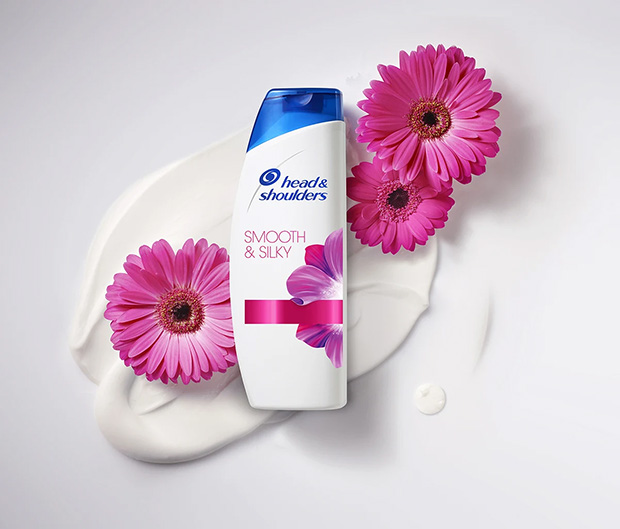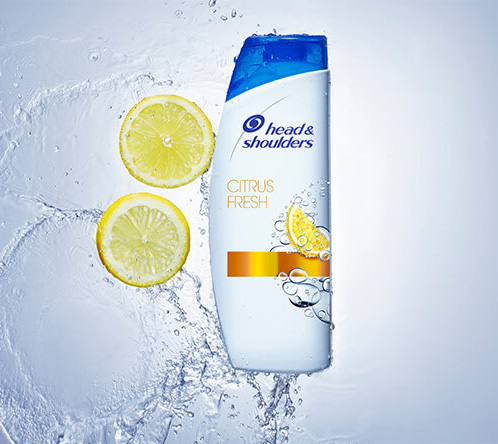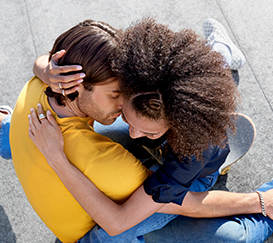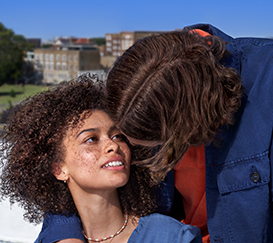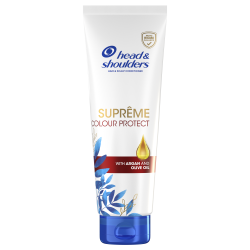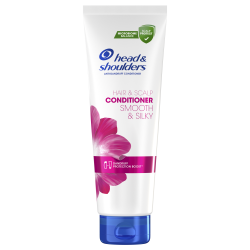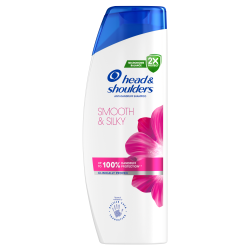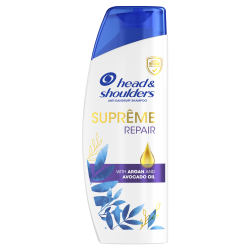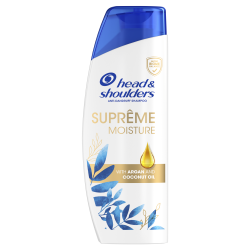What does hair conditioner do and why do you need it?
- In this article:
- Go to sectionWILL A HAIR AND SCALP CONDITIONER WORK AS WELL AS A NORMAL ONE?
- Go to sectionWHAT MAKES A GOOD HAIR AND SCALP CONDITIONER?
- Go to sectionHOW TO USE A CONDITIONER
- Go to sectionGETTING THE PREP RIGHT
- Go to sectionCONDITIONING YOUR HAIR
- Go to sectionDRY SCALP CONDITIONER – HOW DOES IT WORK?
- Go to sectionWHY APPLYING CONDITIONER BEFORE SHAMPOOING IS A BAD IDEA
- Go to sectionWHEN SHOULD YOU APPLY CONDITIONER?
- Go to sectionWHAT IS THE BEST CONDITIONER FOR DRY HAIR?
- Go to sectionWHAT TO LOOK FOR IN A CONDITIONER:
If you like to use a conditioner after you shampoo your hair, it’s best to choose an anti-dandruff conditioner over a cosmetic one.
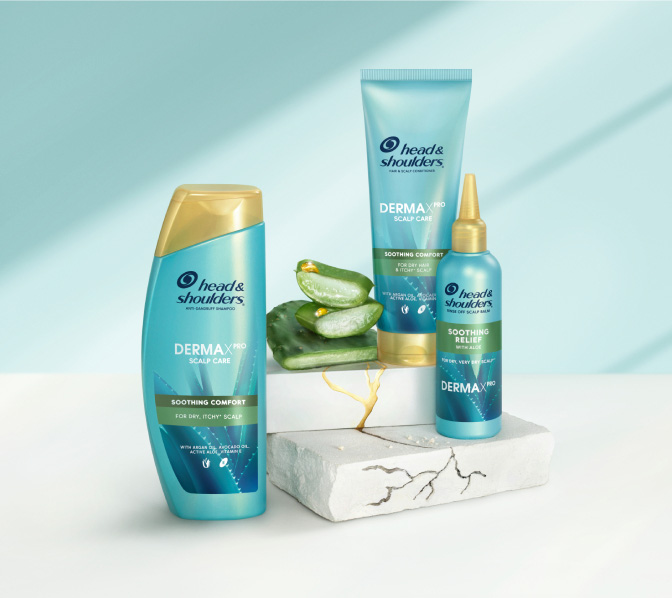
Ordinary cosmetic conditioners can wash away the dandruff-fighting ingredients from your anti-dandruff shampoo, reducing its effectiveness at fighting flakes.
Head & Shoulders anti-dandruff conditioners are developed to work hand-in-hand with our anti-dandruff shampoos. They condition your hair to keep it feeling soft and healthy, while locking in the dandruff-fighting power of the shampoo.
If you suffer from dandruff-laden locks, make sure you use an anti-dandruff conditioner in combination with your shampoo for the best results.
For lots of us, shampoo and conditioner perform two totally different jobs. Shampoo is your functional friend, there to wash your hair of the excess oils and product build-up so it feels squeaky clean.
Conditioner, meanwhile, is shampoo’s luxury-loving sister. Its job is all about moisturizing your hair and make it look shiny and feel soft and touchable. It’s a step that lots of people don’t think they need, although it can have great benefits for your hair, helping to keep it in tip top shape.
If you suffer from dandruff, itchy or dry scalp though, the rules aren’t quite as clear-cut.
When you use a dandruff shampoo, you’re not only cleaning your hair and scalp, but you are also caring for them by applying an active ingredient, that protects your scalp around the clock, until the next wash. Using the shampoo regularly, you can help prevent even the early signs of dandruff.
But combining your dandruff shampoo with an ordinary conditioner could be stopping your dandruff shampoo from doing its job as well as it could.
In fact, ordinary conditioners remove up to 70% of dandruff-fighting ingredients from your skin, leaving you much less protected in-between washes.
That’s why you should invest in a conditioner with an anti-dandruff ingredient.
WILL A HAIR AND SCALP CONDITIONER WORK AS WELL AS A NORMAL ONE?
There’s a myth that shampoos and conditioners that treat dandruff must be harsh to get the flakes out of your hair. It’s not true – our shampoos and conditioners don’t try to ‘strip out’ your dandruff with harsh chemicals.
In fact, our research has revealed that dandruff is caused by a microbe that lives on everyone’s scalps. It produces substances that can aggravate your scalp and can cause flaking in some people. We treat dandruff by using an active ingredient which protects your scalp from these substances. No need for harshness.
What’s more, we’re the first shampoo that’s clinically proven to improve hair quality, because if you sort out your scalp first, your hair will grow through stronger. That’s because your scalp is the foundation for great hair- when the scalp isn’t in good shape, it’s less effective at caring for your growing hair, so it’s “born” with more damage.
When it comes to conditioners, they contain the same active ingredient as in our shampoos, to make sure your protection stays high, but in all other ways it’s designed just like a regular conditioner. It contains lots of moisturizing ingredients that will keep your hair smooth and soft. So, both your hair and scalp will be better off - bonus!
WHAT MAKES A GOOD HAIR AND SCALP CONDITIONER?
Look for conditioners that blend restoring hair and scalp moisturizers with a clinically proven active ingredient to lock in dandruff-fighting power.
Our conditioners fit the bill. Plus, unlike ordinary conditioners, the dual-action formulas are infused with micronutrients, lipids, and antioxidants to beautifully moisturise both your hair and scalp, while giving you lasting dandruff protection.
By now we hope we’ve convinced you that if you want flake-free*, gorgeous hair, a hair and scalp -dandruff conditioner is your new best friend.
*visible flakes from 2 ft. with regular use
HOW TO USE A CONDITIONER
Let’s discuss the proper ways of how to use conditioner.
Getting the best from conditioner means using it regularly.
Allow us to explain.
GETTING THE PREP RIGHT
Yes, you need to prepare your hair for a conditioner.
But don’t worry, it’s not particularly hard.
Start by using a good shampoo that will help protect your hair and scalp – like Head & Shoulders, the first shampoo that’s been clinically proven to give you better quality hair from the scalp.
When your scalp is in good condition, it’s better at caring for the growing hair, so it’s formed properly. Scalp issues like dandruff can actually cause new hair to be damaged as it grows. That’s why keeping your scalp in shape is essential.
Once you’ve given your hair a good wash, don’t move straight onto the conditioner.
Rather, use your hands to squeeze out any excess moisture from your hair. This will help the conditioner to do its job.
Now, you’re ready to condition.
CONDITIONING YOUR HAIR
The first step is to make sure that you use the right amount of conditioner.
For long hair, that’s enough to fill the palm of your hand – for shorter hair, aim for walnut size.
Spread it over your hands, and then through your hair, starting at the roots.
Focus should be given to the middle and end sections of your hair; these are the older parts of your hair, and therefore need more help from a good conditioner. However, you should also use a small amount of conditioner on the roots to keep your scalp and hair in good shape as they grow. Head & Shoulders conditioners keep your hair nourished from root to tip, while also moisturizing your scalp.
Once you’ve got good coverage, give your hair conditioner a chance to do its work. That means leaving it for at least 30 seconds - and longer, if you’re able to.
When you rinse out your conditioner, make sure you do it thoroughly. While it’s great for your hair, if any is left in it can cause build-up, which is not ideal.
Once you’ve properly washed and conditioned your hair, use a wide-toothed comb to detangle. This will be much gentler on your hair than other methods, helping the good work your conditioner has done to be even more effective.
DRY SCALP CONDITIONER – HOW DOES IT WORK?
If you’re using a dry scalp shampoo, should you also use a dry scalp conditioner? Find out how dry scalp conditioners work and why you should use one.
Dry scalp is commonly caused by dandruff, so an anti-dandruff shampoo is often your best bet for getting rid of the dryness.
Our Dry Scalp Care Shampoo tackles the root cause of dryness, 1 while nourishing your scalp with moisture. It restores up to 75% more moisture than an ordinary moisturizing shampoo, and allows your scalp to restore its natural moisture barrier.
WHY APPLYING CONDITIONER BEFORE SHAMPOOING IS A BAD IDEA
You might have read about the reverse washing trend and maybe even found it intriguing, but should you really apply conditioner before shampoo?
If you’ve been struggling to give your thin, limp hair some volume or added moisture, you probably also read that this reverse washing routine could be the answer you’ve been looking for.
This doesn’t actually work, though.
Think of your skincare routine for a moment. Would you ever wash your face just after applying your moisturiser?
If you did, your cleanser would have to work overtime to clean your face properly and it would remove the product you’ve just applied.
Applying conditioner before shampooing your hair is the same concept.
If shampoo is applied as the second step in your hair care routine, after conditioner, the nourishing and active ingredients you’ve just applied are removed by the shampoo. In this order, the “good” ingredients for your hair also get washed away.
WHEN SHOULD YOU APPLY CONDITIONER?
As it turns out, the traditional shampoo-first routine is still the best way to go. That’s because we want to first remove any impurities or oil build-ups before applying a moisturising conditioner.
If your conditioner is not giving your hair the moisture benefits it needs, or even making your hair feel too heavy or flat, it’s time to switch conditioners - not routines. You could be using the wrong conditioner for your hair type.
If you don’t know where to start, give Head & Shoulders Classic Clean conditioner a try. It’s suitable for most hair types and the active ingredients not only moisturise your hair deeply, but it also gives you lasting protection against dandruff.
If you realise you need more intense moisture, try Head & Shoulders Deep Hydration conditioner.
WHAT IS THE BEST CONDITIONER FOR DRY HAIR?
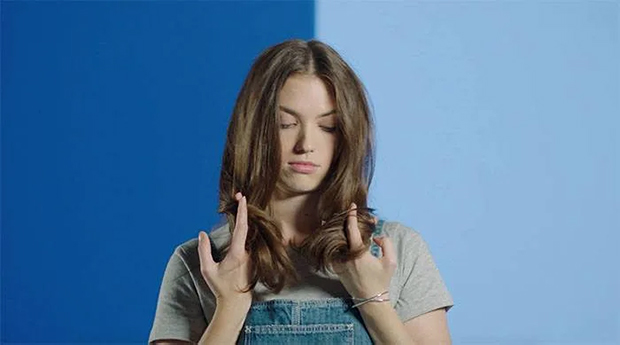
When your hair is feeling a little dry, it’s often related to the condition of its outer layer.
Your hair is made up of several different layers, and the outermost one is called the f-layer. This waxy covering is your hair’s first line of defence against damage, and acts almost like a ‘waterproof coat’ for your hair.
Underneath the f-layer, the cuticle is made of tiny overlapping scales. It is also essential for protecting your hair fibres from damage and making them feel smooth.
Over time, chemical treatments and styling stress can strip away the f-layer. When that’s gone, the cuticle can be harmed. Its overlapping scales start to lift up instead of lying flat, and the edges chip off; sections of the cuticle may be entirely removed.
That’s why hair can feel dry and rough. But don’t worry, with the right conditioner you can help keep your cuticle in great shape, and keep your hair’s defences high.
So how do you choose a conditioner to help keep your hair feeling healthy? We have a few things you should check for on the ingredients list.
WHAT TO LOOK FOR IN A CONDITIONER:
Dimethicone: it has a complicated name, but a pretty straightforward job. A conditioner with ingredients like dimethicone helps restore the ‘waterproofing’ on the outside of your hair and smooths down cuticle edges.
Nourishing lipids: Also look for ingredients that act like hair’s natural, healthy oils, like “cetyl alcohol” and “stearyl alcohol.” Their job is to nourish hair from the inside, out and can be found in good protective conditioners.
Look for benefit words, like “repair” “moisture” or “smoothing”. There is a huge number of possible ingredients in conditioners, so these benefit words let you know which hair issue the manufacturer is targeting with their ingredient selection and which would be the best conditioner for the issue you want to address.
Use an anti-dandruff conditioner: If you use dandruff shampoo, make sure to use anti-dandruff conditioner for soft hair. Most ordinary conditioners will wash away some of the active ingredients left on the scalp, so you’ll lose a lot of the anti-dandruff protection. Our anti-dandruff conditioners have been designed to work hand-in-hand with anti-dandruff shampoos, so they will leave your hair well moisturized and also leave behind anti-dandruff actives to ensure you’re protected against a visibly flaky scalp.
